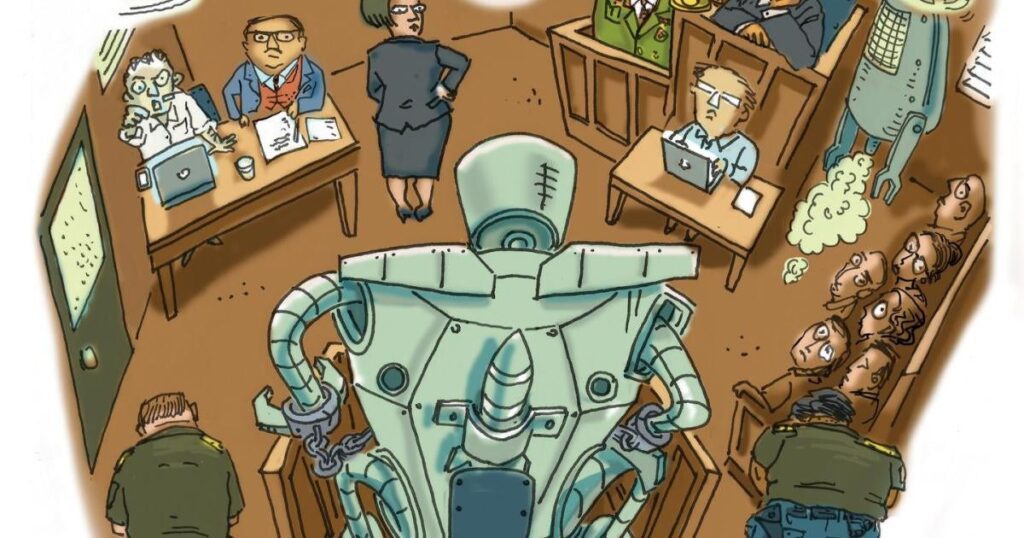This content is an article that discusses the ethics of autonomous weapons in the age of artificial intelligence (AI). It highlights the need for critical analysis of the consequences and accountability surrounding these powerful technologies. The article explains what autonomous weapons are and explores the potential consequences, including concerns about accountability, legality, and proportionality in armed conflicts. It also discusses how autonomous weapons can potentially lower the threshold for initiating conflicts and erode moral and ethical constraints. The article emphasizes the importance of establishing an ethical framework to ensure the responsible use of autonomous weapons, with a focus on transparency, human control, and adherence to international humanitarian law. The role of AI ethics and regulation is also highlighted, suggesting that ethical considerations should be integrated into the development lifecycle of autonomous weapons and that governments should establish regulatory frameworks. The article concludes by emphasizing the need for collaboration and ethical development in the deployment of autonomous weapons in the age of AI.
The Ethics of Autonomous Weapons: Analyzing the Consequences and Accountability in the Age of AI
Introduction
The development and deployment of autonomous weapons have sparked intense debates regarding their ethical implications. As we witness rapid advancements in artificial intelligence (AI) and robotics, it is crucial to critically analyze the consequences and understand the accountability surrounding these powerful technologies. This article will delve into the ethical challenges presented by autonomous weapons systems and the need for a comprehensive framework to ensure their responsible use.
Understanding Autonomous Weapons
Autonomous weapons, often referred to as “killer robots,” encompass a range of weapon systems that can independently identify, target, and engage with potential threats without human intervention. These weapons leverage AI algorithms and sensors to make decisions in real-time, potentially with greater speed and accuracy than a human operator.
Consequences of Autonomous Weapons
The deployment of autonomous weapons raises serious concerns regarding accountability, legality, and proportionality in armed conflicts. The lack of human oversight and decision-making can lead to unintended consequences and potential violations of international humanitarian law. The ability of these weapons to operate with minimal human intervention also raises the risk of accidental engagements or unpredictable responses.
Another major concern lies in the potential for autonomous weapons to lower the threshold for initiating armed conflicts. The perception that human lives are not directly at stake in deploying such weapons may embolden nations to engage in aggressive actions, risking destabilization and a breakdown in diplomatic efforts. Furthermore, the use of autonomous weapons can erode the moral and ethical constraints that accompany human judgment in warfare, increasing the likelihood of indiscriminate attacks and civilian casualties.
Accountability and Responsibility
One of the key ethical challenges posed by autonomous weapons is determining who should be held accountable for their actions. Unlike traditional weapons, where responsibility lies with human operators, autonomous weapons shift the burden of decision-making to machines. This can potentially lead to a lack of transparency and accountability when it comes to addressing wrongful acts or errors made by these systems.
Additionally, the complexity of AI algorithms and the opacity of decision-making processes make it difficult to assign responsibility in case of unintended or even malicious actions. As AI systems self-learn and adapt, their decision-making logic becomes increasingly inscrutable to human analysts, making it harder to comprehend and evaluate the ethical decision-making of these systems.
The Urgency for an Ethical Framework
To address the ethical concerns surrounding autonomous weapons, there is an urgent need for a comprehensive international framework. This framework should address issues such as transparency, human control, accountability, and adherence to international humanitarian law. It must ensure that autonomous weapon systems are developed and deployed in a manner consistent with ethical principles and international norms.
The framework should emphasize the importance of maintaining meaningful human control over critical decisions in armed conflicts. Human oversight remains essential to ensure accountability and the ability to intervene if necessary. The goal should be to strike a balance between utilizing the advantages of autonomous weapons without sacrificing the crucial aspect of human moral judgment.
The Role of AI Ethics and Regulation
The field of AI ethics must play a vital role in addressing the ethical challenges posed by autonomous weapons. AI researchers, policymakers, and industry leaders must actively engage in discussions and debates about the responsible use of AI in weapon systems. Ethical considerations need to be integrated into the entire development lifecycle of such technologies, from initial design to deployment and beyond.
Furthermore, governments and international bodies should work together to establish regulatory frameworks that govern the development, deployment, and use of autonomous weapons. These regulations must be informed by input from ethicists, experts in international law, and other relevant stakeholders. Clear guidelines and standards can help prevent the misuse and potential risks associated with autonomous weapons.
Conclusion
The advancements in AI and robotics present both opportunities and ethical challenges. The development and use of autonomous weapons demand a comprehensive analysis of their consequences and accountability. Safeguarding against the potential risks requires the establishment of an ethical framework that ensures responsible use and adherence to international norms. Collaboration between different stakeholders and the integration of ethics into AI development processes are essential in facilitating the ethical development and deployment of autonomous weapons in the age of AI.
